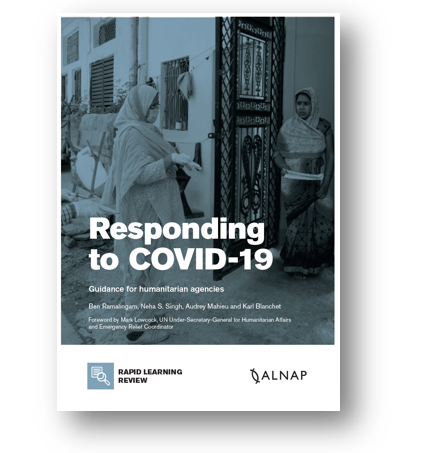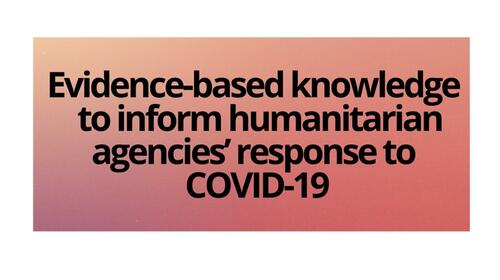As the humanitarian community responds to one of the most far-reaching and significant challenges of our lifetimes, it will be more important than ever to continually share with each other learning, knowledge and expertise.
- Mark Lowcock, United Nations Under-Secretary-General for Humanitarian Affairs and Emergency Relief Coordinator
The rapid spread of COVID-19 is causing an unprecedented human crisis, affecting the lives and livelihoods of millions of people across the world. The response to the pandemic requires, more than ever, that decisions are guided by sound and reliable evidence.
In this context, evaluation plays a crucial role, by providing decision makers with evidence and lessons learned from previous humanitarian crises, showing what worked and what did not work, so as to inform the response and recovery from the COVID-19 crisis.
The global nature of the pandemic calls for a global response. This is why UNFPA Evaluation Office prioritizes joint and systemwide efforts, rather than the conduct of individual, agency-specific exercises. In particular, the Evaluation Office engages in the activities of the Inter-Agency Humanitarian Evaluation Steering Group and is an active member of the ALNAP (Active Learning Network for Accountability and Performance).
ALNAP is a global network of NGOs, UN agencies, members of the Red Cross/Crescent Movement, donors, academics, and consultants dedicated to learning how to improve response to humanitarian crises. The network recently released a publication on the COVID-19 response, Responding to COVID-19: Guidance for humanitarian agencies. ALNAP has also set up a COVID-19 Response Portal, which provides useful tools, papers and lessons meant to inform planning and responding to the current pandemic.
As the crisis evolves, UNFPA Evaluation Office will continue to play its full part in contributing evaluative evidence for an informed response.
For further information on the publication, join ALNAP’s webinar: 14 actions for humanitarians responding to COVID-19, on 12 May 2020 (14:00-15:00 GMT+1). The webinar will discuss and reflect upon the paper’s actions and the challenges and opportunities different humanitarian actors are facing when putting them into practice.

